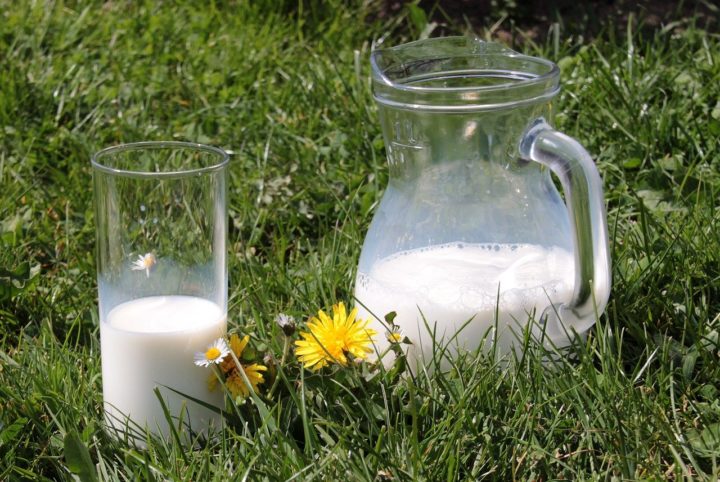Changes in the purchasing policies of a major milk processor and a major retailer have led to thousands of dairy farmers across the UK and EU changing the ways they farm to produce dairy products that are lower in saturated fats and have a lower carbon footprint, thanks to food science research at Reading.
It has long been known that eating too much saturated fat, including that found in cheese and butter, can raise our blood cholesterol and risk of heart disease. Dairy farming also has a big carbon footprint, partly because cows burp vast volumes of planet-warming methane and many cattle feeds contain palm oil, which is linked with deforestation. Research led by Professors Julie Lovegrove and Ian Givens is helping to solve these problems in one fell swoop.
By changing the diets of dairy cows to include more rape seed or unsaturated high-oleic acid sunflower oil, the team has shown that the animals emit 18 to 20% less methane and produce milk with up to 36% lower saturated fat content. What is more, the oil can partially replace palm oil in the milk supply chain, further reducing its carbon footprint. Further clinical research showed that people who ate dairy made from the modified milk had lower cholesterol and healthier blood vessels compared with those who ate unmodified dairy. The findings suggest that modifying the fatty acids within dairy produced may have potential as a public health strategy to reduce risk of cardio-vascular diseases.
This unique whole food chain approach – from farm to fridge – enabled UK retailer Marks & Spencer to reduce saturated fat and palm oils across its milk supply chain, with 1.5 million customers benefiting from its healthier, ‘greener’ milk since 2014. The Reading team also worked with Valio, a major EU milk processor, to encourage its 4,500 milk producers to cut methane emissions by changing the diet of their cattle.
Professor Lovegrove’s expertise is much in demand. She works with the UK Government’s Scientific Advisory Committee on Nutrition (SACN) and its advisory group on ‘Saturated Fats and Health’, and she has helped inform national public health advice to encourage people to swap dietary saturated fats for unsaturated fats.
Find out more
Healthier, greener milk (research highlight, March 2018)
£900k research project to understand where obesity comes from (press release, March 2019)
Institute for Food, Nutrition & Health (website)
View the full impact case study on the REF 2021 website: Reducing and replacing saturated fats in milk: evidence of the benefits to human health and the environment shapes government and food industry policy and practice

